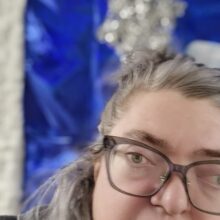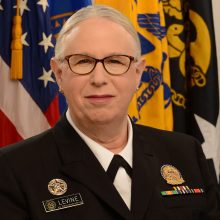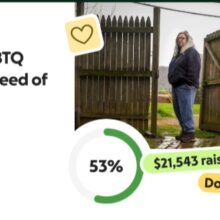
What message do you have for trans and queer youth? You are not alone. Don’t let them erase you. This isn’t the first time or the last time that trans people will have to fight to exist – don’t give up the fight. Read up on your history and take pride in it. Make art. Write it down. This is your story to tell, too. You get to make it a good one.
In response to the decision by UPMC to disrupt and dismantle gender affirming healthcare for trans youth 19 and under, a stalwart group of UPMC employees have been resisting – challenging the administrative narrative, clarifying the consequences, and distinguishing between an executive order and a law. They’ve rallied, partnered with community groups, and worked behind the scenes on safety nets.
Over 400 UPMC employees signed the open letter (read it here.) Several have agreed to answer some questions for us. Their words and actions are inspiring. Please read, share, then read again. Understanding the facts – the facts of law, the facts of what UPMC administrators are telling their staff, and the facts of how to push back – is essential for all allies.
Kailey makes a good point – if UPMC can eliminate gender-affirming healthcare under false pretenses, they can normalizing denying other people healthcare. We’ve seen what happened with access to abortion and reproductive healthcare. We’ve seen the erosion of due process nationwide.
If you are a signator to the UPMC Open Letter willing to complete a Q&A. please email upmcproviders4transjustice@gmail.com
Your Name: Kailey Andrew
Your Pronouns: she/they
Your Affiliation with UPMC: Behavioral Health Therapist at the STAR Clinic
Please tell us about the first LGBTQIA+ person you met and describe the impact they had on your life
The first queer person I met was my favorite aunt, but I didn’t realize until I was about 15-16 years old and finally coming out to myself. Growing up, I was told that her wife was her “friend” and I still remember finding the photos of her wedding at my grandma’s house and being shocked. They got married soon after it became legal in some of the New England states, I think in Vermont since it was legal there a little before New Hampshire. I always knew she was the cool aunt; she wore overalls and worked at the Birkenstock store. She showed up for me a lot, in that kind and blunt New Englander way, when I came out and ended up moving out of my parents’ house as a teen. She also indirectly helped me come out to my grandma; I was extremely nervous to say the word “gay” out loud and I still remember stuttering through “so you know how (my aunt) married a woman? … I think I might want to marry a woman too.”
UPMC’s Adolescent Programming for LGBTQIA+ youth, especially gender affirming healthcare, has been a source of pride for our region.Tell us about these healthcare supports in your own words.
Nearly every queer and trans client that I’ve worked with has either been seen by UPMC Adolescent Medicine or I have referred them there for gender affirming medical care. As a clinic specializing in suicide prevention, STAR receives a lot of referrals from what we call “Adolescent Med” when they have a patient who may be experiencing severe depression and/or anxiety or a patient who is expressing suicidality. Beyond that specific clinic, there’s also LGBT+ support groups run within surrounding outpatient clinics like Bellefield Adult Clinic and the Center for Children and Families.
Please share something about Pittsburgh’s LGBTQIA+ healthcare that most people would not know.
This isn’t specific to Pittsburgh healthcare, but there’s a research article I love that talks about the power of a shared queer identity between provider and client. Even if a provider isn’t explicitly “out” to their clients, there’s a safety signaled from a provider who matches their parent’s identity in that way. I’m proud to work with other queer clinicians who create real, felt safety for their clients through that relational connection every day.
Tell us about your own work with trans and queer youth (as much as you can share) as a UPMC employee.
As a therapist, you start to develop a “niche” population who you really connect with well, whether you mean to or not. That grows and changes over time, but I’ve noticed a pattern of clients I really enjoy working with who tend to be referred my way, and it’s the angry, confrontational queer kids who come in ready to question the status quo. I love seeing people find the power and value in their anger to create positive change, and I’m always encouraging my clients to take responsibility for their lives and to not place it in the hands of anyone else.
In your professional opinion, what consequences can we expect as UPMC discontinues these healthcare services? Please help us understand the big and small impacts we might otherwise not notice.
We’ve talked a lot about the unknown impacts and bracing for the expected impact of abrupt hormonal changes – including suicidal thoughts and psychosis. Something else I think about, which is nothing new, is the loss of trust in the healthcare system at large. Patients are scared, providers are being taught to operate from a place of fear and self preservation as they’re being fed vague threats and told that UPMC will no longer “protect them”. Because this cessation of care happened so quickly and so quietly, I worry that further escalations in denying people healthcare will all too quickly become normalized. What now sounds absurd, like the idea of UPMC selectively denying queer people behavioral healthcare (therapy, psychiatry,) could so quickly become a reality, and we are being primed to accept such changes despite there being no new laws in place. And that said, even if there were sweeping and enforceable laws, how could we call ourselves healthcare providers if we deny people care on the basis of their identity?
It is important to note that Pennsylvania lawmakers have not banned gender affirming healthcare. UPMC officials have implied that they are acting to protect providers from litigation, but your work and the work of your colleagues is absolutely legal. Do you think most people understand this legal and politicized landscape?
No, there is so much misinformation and confusion intentionally being spread by UPMC leadership that there is a major lack of clarity on the legality of these changes. The legal experts we have talked with continue to emphasize the complexities of the law obscuring so much of this from view, but they also make very clear that an executive order is not a change in law but instead guidance or advice to lawmakers and agencies on how to interpret the law – the number of times I have said this to my direct supervisor would make you scream. Please spread the word and repeat yourself as many times as are necessary: gender affirming healthcare is legal in Pennsylvania. There could be no legitimate criminal charges made against a provider providing medical care because doing your job as a healthcare provider is not a crime. UPMC leadership made a financial choice, and aware of their own guilt, they are guising it in the language of protecting its providers from criminal charges. That’s bullshit.
Will you refer clients and potential clients out of the UPMC network? Is that a viable substitute?
Yes I will, just as I would for other care not accessible within the UPMC system. The difficulty with this substitute is that because people are afraid, it relies on word of mouth to share who and where is continuing to see trans patients and provide them with healthcare, so it’s harder to find and I’m sure it will be hard for smaller/independent providers and clinics to meet the demand for care when such a huge healthcare institution closes its doors to a whole demographic of people.
What other options are available?
Independent clinics and providers, finding ways to beat the system through alternative routes (changing documentation, using a diagnosis that would allow care to go under the radar, stockpiling medication), going out of state for care, and using online prescription sources to name a few.
We’ve published the open letter to UPMC circulating among staff. Please tell us in your own words what the letter says.
This letter addresses those at the top who made this decision, people who are the richest, safest, and most out of reach within the system. They don’t want to be accountable for the choice that they made, and the letter forces them to be. The letter asks them to reverse the choice they made and to continue to provide healthcare to trans youth and adults. It also calls them out for using the excuse of made up legal repercussions and points out that this is really about what they are and are not willing to spend their abundant funds on – (willing to spend money on: having several condos and vacation homes. Not willing to spend money on: continuing to provide healthcare to patients who need it.)
What message do you have for trans and queer youth?
You are not alone. Don’t let them erase you. This isn’t the first time or the last time that trans people will have to fight to exist – don’t give up the fight. Read up on your history and take pride in it. Make art. Write it down. This is your story to tell, too. You get to make it a good one.
How can blog readers support your efforts and the larger cause of preserving affirming healthcare?
Donate to TransYOUniting: https://www.transyounitingpgh.org/donate
Read and share the open letter to UPMC: https://docs.google.com/forms/d/e/1FAIpQLSdnSsAAVNKXIOGLCtIyiiImnpRu_Cf8uTeNXxZOj6v5bxS_Pw/viewform
Reach out to us about how to get involved: upmcproviders4transjustice@gmail.com
Hug, feed, listen to your trans friends.
Are there any social media accounts or websites people can access to stay up to date with your efforts?
TransYOUniting website: https://www.transyounitingpgh.org
News sources like WESA, Public Source, Pittsburgh Union Progress, and City Cast Pittsburgh have featured information about our efforts and updated legislation.
Finally, what is your love song to trans and queer youth?
Driving home after the interview with WESA, I turned the radio on and heard the opening guitar of Tom Petty’s “I Won’t Back Down”. It became my personal theme song as I consider my small part in this larger movement. I went on a rage run recently after a long day of work and more staff meetings where our questions go unanswered, and I listened to it probably 30 times in a row, running from my home through Oakland and back again. I listened to it on the way to the rally outside UPMC headquarters and on the ride home, filled with hope at the hundreds of people who showed up to chant with us, the 450+ UPMC staff who have now signed the open letter, and every parent of a trans child who came up to me after we spoke. I can’t hear it now without feeling their hands on my shoulders. It’s calm, steady, and filled with determination. We won’t back down.
Thank you, Kailey.
I asked each for suggestions on how you can help. In my opinion, providing resources to trans led efforts is critical. All of these orgs and their members are experiencing the immediate fallout.
- SistersPGH
- QMNTY Center
- TransYouniting
- PFLAG Pittsburgh
- PFLAG Beaver County
- PFLAG Butler County
- TransPride Pittsburgh
- Hugh Lane Wellness Center
- Pennsylvania Youth Congress
- Pittsburgh LGBTQ Charities Protect Trans Kids – pick up yard signs/stickers (**tied to this blog)













